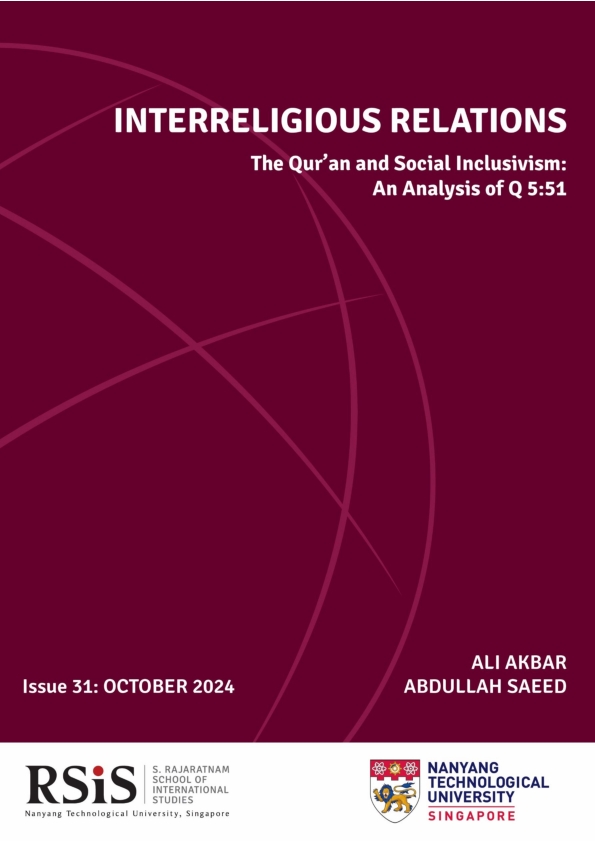31 October 2024
- RSIS
- Publication
- RSIS Publications
- Interreligious Relations (IRR) Issue 31 – The Qur’ān and Social Inclusivism: An Analysis of Q 5:51 by Ali Akbar and Abdullah Saeed
Abstract:
Although the Qur’ān contains many verses that express positive attitudes towards the People of the Book (primarily Jews and Christians), at times, it criticises them. Q 5:51 is believed to be one of the Qur’ānic verses that appears to forbid Muslims from entering into friendly relationships with Jews and Christians. It has been often used by many classical and contemporary Muslim scholars to support social exclusivism – the notion that Muslims must not maintain friendly relationships with people of other faiths. This article analyses Q 5:51, arguing that, despite its apparent literal meaning, it does not forbid a friendly relationship between Muslims and the People of the Book, and by implication, people of other faiths as well. By interpreting the verse in light of other relevant Qur’ānic verses pertaining to the People of the Book and applying a contextual approach, the authors argue that the verse in question does not support social exclusivism.
Abstract:
Although the Qur’ān contains many verses that express positive attitudes towards the People of the Book (primarily Jews and Christians), at times, it criticises them. Q 5:51 is believed to be one of the Qur’ānic verses that appears to forbid Muslims from entering into friendly relationships with Jews and Christians. It has been often used by many classical and contemporary Muslim scholars to support social exclusivism – the notion that Muslims must not maintain friendly relationships with people of other faiths. This article analyses Q 5:51, arguing that, despite its apparent literal meaning, it does not forbid a friendly relationship between Muslims and the People of the Book, and by implication, people of other faiths as well. By interpreting the verse in light of other relevant Qur’ānic verses pertaining to the People of the Book and applying a contextual approach, the authors argue that the verse in question does not support social exclusivism.





